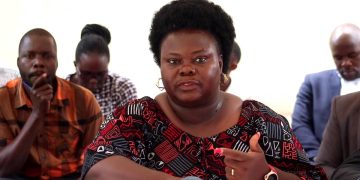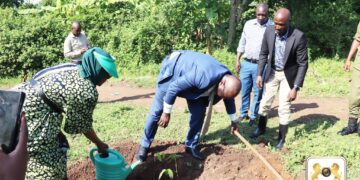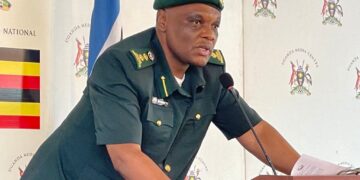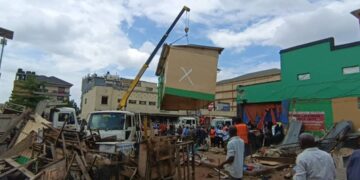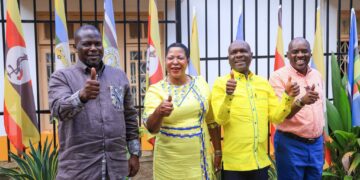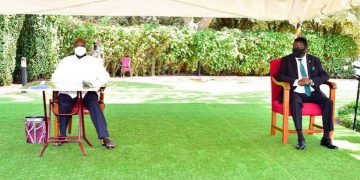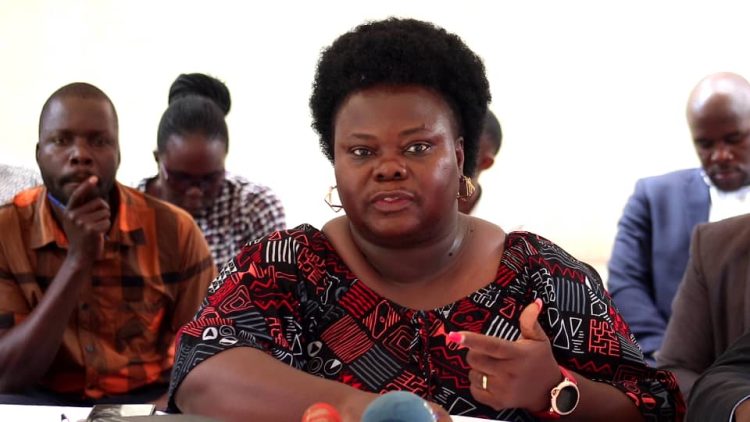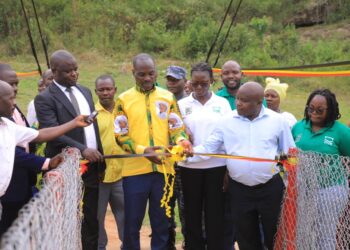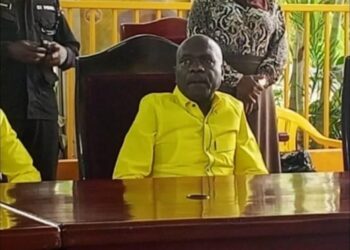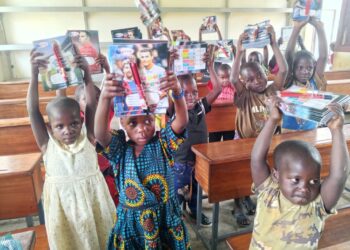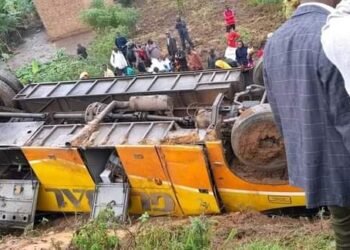By Gilbert Akampa Kakurugu,
KAMPALA
As the new year 2025 dawns, Ugandans are welcomed with reflections on the nation’s progress in 2024 and a renewed commitment to overcoming ongoing challenges.
Barbara Babweetera, Vice Chairperson of the NGO Forum, addressed the media during a press conference, highlighting the progress made in 2024 in various sectors, including global leadership and regional influence.
She noted that Uganda’s growing influence in global and regional affairs was highlighted by hosting the Third South Summit, commemorating the 60th anniversary of the Group of 77 and China. This event reaffirmed developing nations’ commitment to sustainable development, peace, and cooperation. Uganda’s leadership within the Non-Aligned Movement (NAM) further enhanced its role in global governance, emphasizing trade, science, and technology, and tackling global challenges such as crime, terrorism, and climate change.
Babweetera also emphasized significant progress in Uganda’s health sector, notably with the rollout of the malaria vaccine, a critical step in combating one of the country’s deadliest diseases. This effort complements ongoing prevention strategies like mosquito net distribution and indoor spraying. Additionally, investments in community health workers and the second National Action Plan for Health Security have strengthened healthcare systems and improved disease preparedness and response.
Launched in 2022, the Parish Development Model (PDM) aims to transition 17.5 million Ugandans from subsistence living to active economic participation. Over three years, improvements in parish-level infrastructure and services have increased citizen engagement in government programs and supported local business growth. However, challenges like limited citizen ownership, corruption, and abuse of office hinder the program’s full potential. Prioritizing the “mindset change” pillar is essential for sustaining the PDM’s impact and achieving its objectives”added Babweetera.
Despite significant progress, Uganda continues to face challenges in human rights, poverty, and inequality. Economic growth is offset by rising living costs, unemployment, and disparities, particularly in rural and marginalized areas. Climate change exacerbates these issues, with erratic weather disrupting agriculture, food security, and livelihoods. Floods and landslides in districts like Kasese and the Mt. Elgon region displaced tens of thousands, while inadequate funding hampers effective responses.
Corruption remains a major obstacle, diverting resources from critical sectors and hindering sustainable development. Political freedoms are constrained, with restrictions on expression, assembly, and association. Civil society organizations (CSOs) face operational challenges, and citizens and activists endure harassment, limiting democratic participation and advocacy for governance, human rights, and social justice.
CSOs have been instrumental in Uganda’s national development and global advocacy, contributing to the National Development Plan IV (NDPIV) and playing key roles in Uganda’s Voluntary National Review. They continue to advocate for policy reforms in electoral democracy, health, education, gender equality, and climate change.
In response to the refugee crisis and climate-related disasters, CSOs provided humanitarian aid, including food, shelter, and healthcare, while supporting displaced communities in rebuilding and reintegration.
Henry Maguzi, Executive Director for Alliance for Finance Monitoring, emphasized the need to strengthen democracy and development as Uganda prepares for its General Election under the 1995 Constitution. While past elections have offered lessons, challenges like voter bribery, voter intimidation, limited media access for the opposition, violence, and suppression of dissent persist, undermining the process’s integrity. Without significant reforms, the upcoming election may face similar issues. Civil society organizations are actively engaging stakeholders, including the Electoral Commission, to address these challenges and advocate for a more transparent, free, and fair election. Citizen participation remains crucial, with ongoing efforts to support voter and civic education ensuring Ugandans are informed and empowered to engage meaningfully in shaping the country’s development trajectory.
The localization agenda remains a key focus for civil society, advocating for locally-led solutions to development challenges. It is essential that Uganda strengthens its commitment to people-centered development, integrating the priorities of underserved communities into national policies and programs. Collaboration between CSOs, government, and the private sector is fundamental in achieving the Sustainable Development Goals (SDGs) and advancing Uganda’s Vision 2040.
Moses Isooba, Executive Director for Uganda NGO Forum and Convenor of the CSOs, acknowledged that while CSOs have made progress, challenges remain. He noted the government’s rationalization of agencies, including the transfer of the NGO Bureau to the Ministry of Internal Affairs, and expressed hope for continued cooperation. Kisoba also highlighted the country’s debt stress, where funds intended for healthcare, infrastructure development, and other critical areas may be diverted to debt repayment.
Margaret Sekaggya, Executive Director of Human Rights Centre Uganda, stressed the importance of addressing citizen participation as the 2026 general elections approach. She urged the government to implement electoral reforms early to avoid doubts about the election results. Sekaja emphasized the need for freedom of the press, association, and expression across all political parties to ensure free and fair elections. She also called on the government to strengthen the judicial system to handle cases arising from political disputes promptly.
